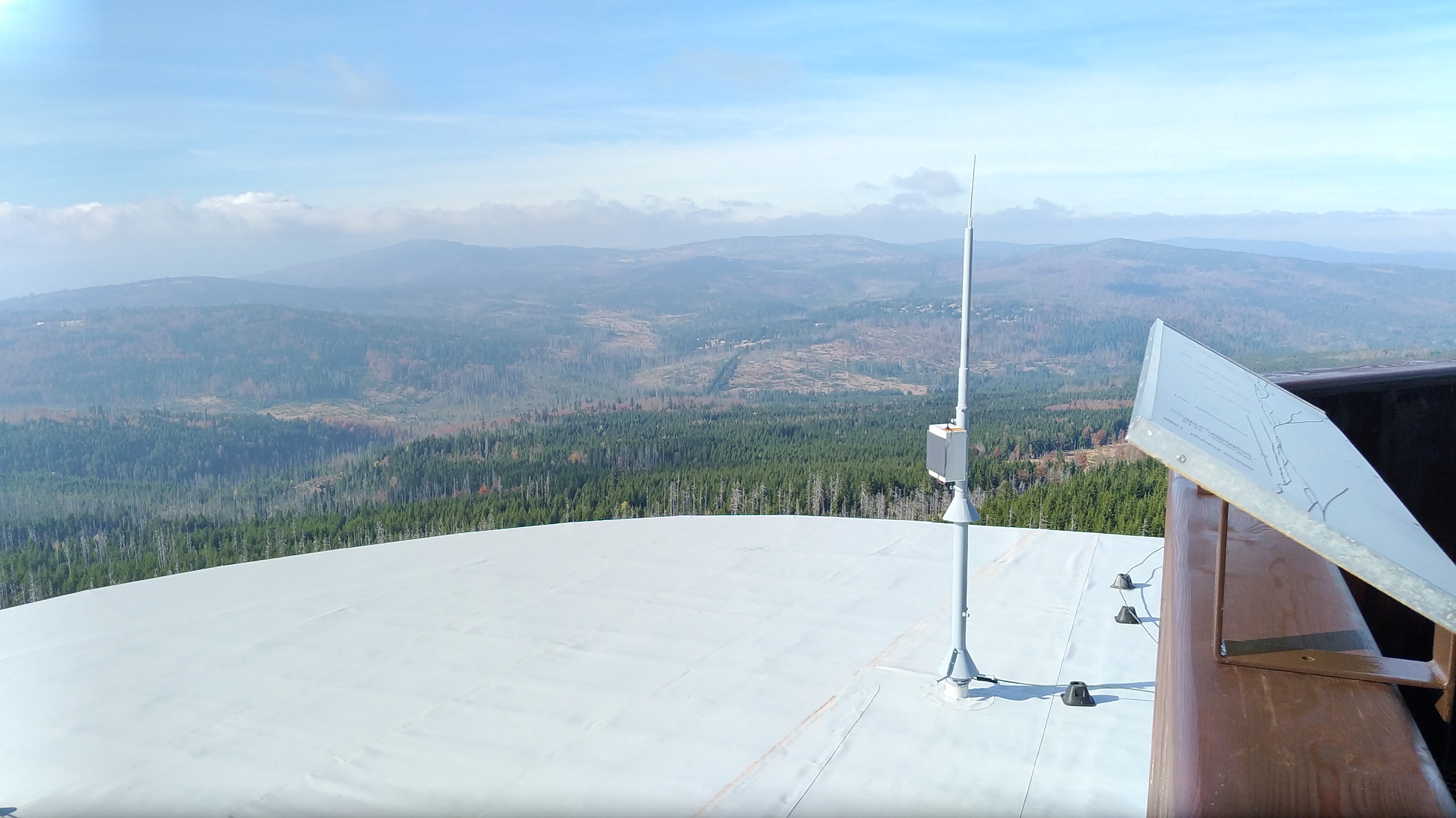GEODOS01 – Stand-alone Ionizing Radiation Monitor
GEODOS01 is a scintillation detector for ionizing radiation, designed for long-term unattended outdoor operation. Its construction makes it particularly suitable for deployment in mountain regions or remote areas where power and network access are limited.

Overview
The device provides fully autonomous detection, logging, and telemetry of radiation events, including backup power and solar charging. It is a robust system proven in long-term environmental monitoring campaigns and scientific research projects, including installations in the Šumava Mountains, Chernobyl Red Forest, and Kosetice Atmospheric Tower.
GEODOS01 serves as a reference instrument in several CRREAT project installations for studying thunderstorm-related radiation phenomena.
Key Features
- Detection element: NaI(Tl) scintillation crystal (⌀14×20 mm) with integrated SiPM
- Power source: solar panel with LTO battery backup
- Data logging: SD card storage
- Communication: LoRa IoT telemetry
- Time accuracy: 500 ns
- Spectral resolution: 0.02 MeV
- Operational range: −30 °C to +50 °C
- Measurement autonomy: ~6 months per 2 GB SD card
- Open‑source hardware and firmware
Technical Specifications
| Parameter | Value |
|---|---|
| Detection crystal | NaI(Tl) ⌀14 mm × 20 mm with SiPM |
| Energy range | 0.3 – 18 MeV |
| Time resolution | 20 µs |
| ADC conversion time | 104 µs |
| Dead time | 2 µs |
| Power | Solar panel + LTO backup |
| Data storage | SD card |
| Communication | LoRa WAN |
| Operating temperature | −30 °C to +50 °C |
| Enclosure | Spelsberg TK PS 2518‑11‑o (IP33) |
Data and Communication
GEODOS01 transmits data using an NMEA‑0183‑like textual protocol with two primary message types:
Histogram message
$HIST,8,118.15,960.09,4.06,2.33,394,803,0,3,30656,2401,...
Represents accumulated energy histogram values.
Events message
$HITS,20,916,84,2984,37,16386,38,30666,26,...
Reports individual radiation events with timestamp and energy channel.
Messages are transmitted over LoRa or stored locally on the SD card for later analysis.
Publications
- Monitoring of ionizing radiation from thunderstorms in Bohemian Forest using standalone device GEODOS. Read online (NP Šumava, 2024)